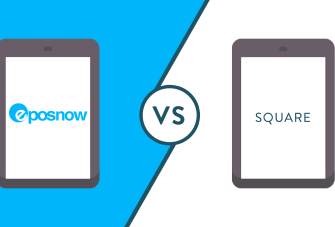How Much Money Do You Need to Start a Business?
If you have an excellent idea for your small business, you likely want to make it a reality as soon as possible. Also, the faster you act, the less you have to worry about competition or someone else capitalising on your idea.
But let’s be realistic for a moment. Opening a business takes a lot of time and money and if you want to succeed, you need to plan properly. One of the questions you should ask yourself is “how much money do you need to start a business?”
Since all businesses have unique demands, there is no definitive answer to this question. Depending on your goals, you might need anywhere from $100 to $100,000 to start your business.
In this complete guide, we'll give you information on everything from average startup costs and variable costs to ongoing business expenses. Here's everything you need to know about the cost of running a successful business.
Business set-up costs
Here are some rough estimates of how much money you'll need to start specific businesses:
- Brick and mortar retail: $5,000 - $100,000
- Full-service restaurant: $100,000 - $750,000
- Bar: $100,000 - $500,000
- Online business: $50 - $5,000
- Mobile services (car detailing, pressure washing, etc): $1,000 - $25,000
- Home-based business: $100 - $500
It's important to note that business financing models like these cannot be calculated on fixed costs. Your actual start-up cost will vary depending on a wide range of factors. Before committing to an expensive lease or signing any purchase orders, be sure to use the Small Business Administration website for their break-even point calculator to see how much revenue you need to generate to justify your startup costs[1].
Common factors that affect business startup costs
For most businesses, the following items will have the largest impact on your cost of starting a business.
Rent
The location of your business is extremely important. You need to be concerned about where you start your business and ensure the space accommodates your needs.
Unfortunately, you will likely pay higher rent for a commercial space or office space that is in a good area and has all the features you need to get started. While you shouldn't skimp out on crucial aspects, you might need to forgo some elements that could raise rent rates. For example, choosing a location with shared parking can often be cheaper than opting for a building with private parking.
Depending on your industry, working from home may have become so common that you could forego office space rental to save money, which will take a huge long term business expense out of the equation. However, this will also make running the business a very different experience so requires careful consideration.
How much should small business owners pay for real estate?
The answer is found in your rent-to-revenue ratio. To find this number, divide rent/revenue. A healthy business will get a result between .02 and .2 (or 2% and 20%).
For retail businesses, you want this percentage to be close to 5%. For service businesses like accountants, this ratio can sit higher around 15%
Inventory and raw materials
Inventory and stock costs are some of the most important expenses for your businesses. If you don’t buy socks, you won’t have anything to sell.
If you are a restaurant or other hospitality business, you will also need to purchase inventory to create your menu items as well as stocking the bar.
Depending on the scale of your business, purchasing these items will have variable costs. The cost per item will be especially high for luxury stores that sell high-end fashion or speciality stores that offer expensive equipment. Simply outfitting your store can quickly cost $100,000.
In any event, you will need to crunch numbers carefully to decide how much inventory to purchase. Some factors to consider include:
- Demand: Analyse your market to determine what your expected sales volume will be.
- Storage space: While you want to stock your shelves so your store doesn't look empty, having too much inventory can end up costing you more. Likewise, having perishable items sitting in storage could increase your shrinkage costs.
- Liquid capital: Don't invest all your cash into inventory. Make sure to have extra funds for other unexpected expenses which are sure to arise.
- Profit margin: If you have high margins, you can get away with selling fewer items. If you have low profit margins, you will need to sell many items to stay in the black.
Equipment and supplies
When calculating the cost of setting up a business, many neglect to factor in the tools likely needed to operate smoothly. For small stores, these items can be quite inexpensive. For large restaurants, this equipment could make up a significant portion of your business costs.
Retail businesses may need:
- Retail displays and signs
- Shelves
- Shopping bags and packaging
- A retail POS system
- Uniforms
Hospitality businesses may need:
- Tables and chairs
- Kitchen appliances
- Dinnerware and napkins
- A hospitality POS
- A kitchen display system
- Uniforms
- Decor and lighting
Administrative affairs
Whether you work from home or have a giant store, your business will need to comply with local laws and process many behind-the-scenes tasks. No matter if you handle these administrative items yourself or hire someone to assist you, they will affect your bottom line.
Make sure to account for the following items in your business plan when calculating your startup costs:
- Licensing and permits
- Business insurance costs
- Payroll
- Taxes
- Utilities
- Legal services
- Office supplies
- Software
Advertising
The global economy keeps growing, and with it comes increased competition. No matter how good your products or services are, you need to market them to prevent someone else from taking away your customers. Calculating the cost of starting a business without sales and marketing expenses is useless, as the initial investment requires profit once the business is established.
Advertising costs could vary wildly depending on your business model. For example, a gas station likely doesn't need to do much more than set up roadside displays. On the other hand, a restaurant located in a shopping plaza might need billboards, Google advertising, social media posts, and more.
Although marketing comes at a cost, it does not have to be considered a loss. With the right approach, you can generate a positive return on ad spend that helps your business grow.
Everything in one package
Our POS system enables you to adapt, gain new customers, increase profit and remain future proof. Get everything you need to trade in one system, including POS terminal, built-in printer, and card machine.
How can an Epos Now POS system help you save costs?
Implementing an Epos Now POS system for your business can significantly contribute to cost savings and operational efficiency. Here's how:
- Inventory management: Utilising Epos Now's POS system enables precise tracking of inventory levels in real time. By efficiently managing stock levels and reducing overstock or stockouts, you can minimise inventory carrying costs and avoid unnecessary losses due to spoilage or obsolescence.
- Streamlined operations: With features like barcode scanning and automated order processing offered by Epos Now's POS software, checkout processes are streamlined, reducing the need for manual data entry. This efficiency improvement can lead to reduced labour costs and increased employee productivity.
- Data-driven insights: Epos Now's POS systems provide detailed sales reports and analytics, offering valuable insights into customer preferences, popular products, and sales trends. By leveraging this data, you can make informed decisions about pricing, promotions, and inventory management, optimising your profitability.
- Enhanced security: Epos Now's modern POS systems offer robust security features, such as encrypted payment processing and user access controls, to safeguard against fraudulent activities and data breaches. By minimising the risk of theft or fraud, you can protect your bottom line and maintain customer trust.
- Integrated payment processing: Epos Now's POS systems include integrated payment processing capabilities, simplifying transaction handling and reducing processing fees associated with third-party payment providers. By consolidating payment processing services, you can process payments, negotiate better rates and lower transaction costs.
- Customer relationship management (CRM): Epos Now's POS systems feature CRM functionality (via POS integrations), allowing you to build and maintain customer relationships through loyalty programs, targeted promotions, and personalised marketing campaigns. By increasing customer retention and driving repeat business, you can maximise revenue while minimising acquisition costs.
- Accounting software: Streamline your accounting processes by integrating your accounts with your POS system. Learn how to integrate accounts with your POS in our handy guide.
By leveraging the capabilities of an Epos Now POS system tailored to the needs of your business, you can optimise operational efficiency, reduce business costs, and ultimately enhance profitability. Get in touch with our team to explore how Epos Now's customised POS solution can benefit your business today!
Final thoughts
In conclusion, starting a business requires careful financial planning and consideration of various factors. While there's no one-size-fits-all answer to how much money you need, understanding your specific business requirements is crucial.
In this comprehensive guide, we've covered everything from average startup costs to ongoing business expenses. From the initial setup costs to ongoing operational expenses, each aspect plays a vital role in determining the financial viability of your venture.
Whether you're a small business owner just starting out or looking to streamline existing operations, exploring these resources can empower you to make informed decisions and drive success in your business endeavours.
Enjoyed this blog? Check out our additional business resources:
- Learn about inventory classification and categorising inventory effectively
- Discover essential small business must-haves to ensure success
- Understand the importance of choosing the right business structure for your venture
- Gain insights into restaurant profit and loss statements to optimise your financial management.
Explore these valuable resources today and take your business to new heights with Epos Now!
Ready to upgrade your business with a cutting-edge Point of Sale (POS) system? Don't wait! Contact our expert team today and discover how our innovative POS solutions can streamline your operations, boost sales, and delight your customers. Schedule a consultation now to get started!




